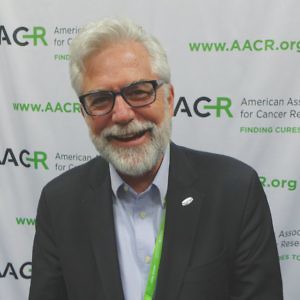AACR Cancer Immunotherapy Insights from Dr Bernard Fox
At the recent annual meeting of the American Association for Cancer Research (AACR), one controversial area that arose was centred around targeting OX40, a stimulatory checkpoint. We’ve written extensively about anti-OX40 checkpoint agonists on the blog in the past.
Targeting OX40 is an area of interest to several companies looking to improve the effectiveness of checkpoint inhibitors. As a result, several companies have OX40 agonists in development, including AstraZeneca/MedImmune, Roche/Genentech, Pfizer, GSK and Incyte/Agenus, for example, making it a competitive target and interesting race to market.
Meanwhile, in their recent 1Q earnings call, Roche announced that they expect to present clinical data on their PD-L1/OX40 combination at the forthcoming American Society of Clinical Oncology (ASCO) annual meeting in Chicago from June 4th to 7th. This therefore makes it a timely moment to reflect on the data generated so far and what we can expect next month.
In New Orleans, we spoke to several researchers who are active in the OX40 field, since there were both mouse and human data presented at this year’s conference.
The interviews conducted were wide-ranging and informative, so in our latest mini-series we explore Part 1 today with Part 2 tomorrow. They are relaxed fireside chats with different experts included in each to discuss their data (and other relevant topics) presented in New Orleans.
This way, you’ll be able to follow along and find out where the common areas are, as well as the differences in perspectives, and even where we could be headed in the near future.
This latest series on OX40 agonists raises many intriguing questions that we hope may be answered at ASCO and other clinical meetings going forward. We also discuss the challenges and opportunities associated with research into cancer immunotherapy combinations.

Dr Bernard Fox at #AACR16
Intriguing preclinical data in mice models were presented by Dr David Messenheimer (Portland). We spoke with the senior author of that abstract, Dr Bernard Fox.
He is the Harder Family Chair for Cancer Research and Chief of the Laboratory of Molecular and Tumour Immunology at the Earle A. Chiles Research Institute in Portland, Oregon, and a leading cancer immunotherapy expert. He’s also the CEO of UbiVac, a biotech spin-off from Chiles in 2005 to develop therapeutic vaccines for cancer and infectious diseases.
Subscribers can login to read more on where “the rubber is hitting the road” in cancer immunotherapy clinical research.
If you’re not already a subscriber, you can purchase access to AACR posts and also our immuno-oncology coverage.
This content is restricted to subscribers